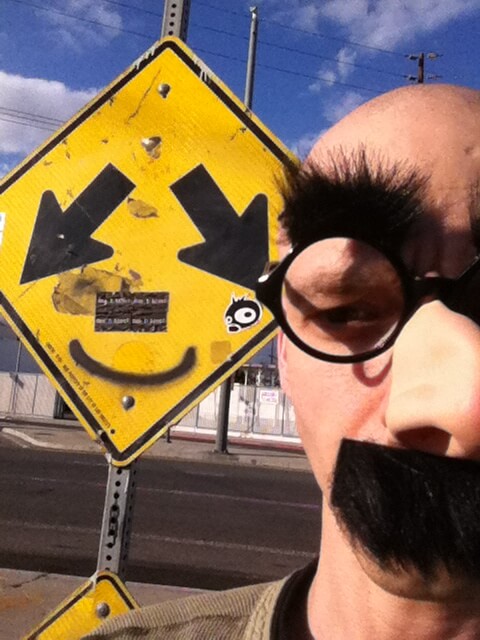
"Zen practice is good for angry people. The form is tight. It squeezes that deep red heart pulp, pushing up emotions from way down inside you."
I said "they " all wind up here, but I guess I mean we. I had one of those moments recently where, upon the much-anticipated departure of an enemy that, as a Buddhist, I could never quite admit was an enemy, I found myself peering around the zendo and thinking, "Wow, there are no assholes living here anymore. "
Whereupon came a sinking feeling, "Wait a minute, there's always at least one. So if I'm looking around the zendo and I can't find him . . . guess who the asshole is! "
Zen practice is good for angry people. The form is tight. It squeezes that deep red heart pulp, pushing up emotions from way down inside you. A lot of "stuff " comes up when you do this practice. Zen gets your juices flowing. And with these juices come seeds-the seeds of your behavior, your character, your anger, all flushed out into the open for you to see.
In Zen we learn that human consciousness is an eminently natural operation. You plant a seed, it grows. Similarly, when something happens to you on the outside, in "the world, " the seeds of this experience take root within you, becoming sensations, thoughts, memories-your inner life. Conversely, when something arises within you, some inner experience, a notion, emotion, or dream, then the seeds of this inner event are disseminated on the outside, in the world, through your words and actions. Buddhists call this codependent origination: all things arise together in a mutually interconnected and interpenetrating web of being. "To see the world in a grain of sand, " William Blake wrote. Or as that great metaphysician Tom "Jerry Maguire " Cruise put it: "You complete me. "

"We got into a fight about something and I smacked him. It came out of nowhere and was meant to be light. Only it clearly did not come out of nowhere, and it was not light."
A year ago, freshly escaped from the monastery for a day, I was slaloming through bustling foot traffic on Santa Monica Boulevard with my mentor, whom I love and adore. We got into a fight about something and I smacked him. It came out of nowhere and was meant to be light. Only it clearly did not come out of nowhere, and it was not light. I can still hear the thwack of my open palm against his belly: the hollow thud of a red rubber ball hitting pavement. There was a long stretch of silence, wherein I should have begged for his forgiveness. But I couldn't catch up to the moment. I couldn't admit to the violence that had just erupted from within me. I couldn't tell whether I meant it, whether it was real, where it came from, or how it got there.
I have violence in me, unfortunately. The seeds were planted long ago by my father, the poor man. How about all the times he didn't whack me? The time he sighed and let it go when I stole one of his antique firearms and ran around the house with it or sat on a sibling and released a cloud of flatulence? No, I remember only the five moments when his anger broke through.
All it takes is one seed. I've apologized, and even sent my mentor a cute homemade card with two stick figures sitting zazen side by side. But my blow planted a hate seed in my mentor, and something irreconcilable has grown between us. I can't seem to reclaim the friendship. I feel as if I'm losing him.
"This is one of the great misconceptions about spiritual work: that if applied correctly, it will make us 'better people' (whatever that means)."

In other words, spiritual work isn't always just "instructive "-it's also transformative, and this kind of transformation can get messy. The Sanskrit term for this is clusterfuck.
Excerpted from Zen Confidential: Confessions of a Wayward Monk by Shozan Jack Haubner


